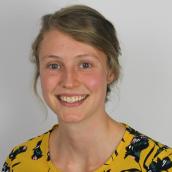What's it like doing an OPM internship?
OPM assistant consultant Laura Brouwer reflects on her experience of OPM’s internship programme and gives advice to current applicants.
-
Date
March 2019
-
Area of expertisePoverty and social protection (PSP)
-
KeywordsConsultant development programme , Social protection
OPM’s 2019 summer internship programme is designed to introduce graduate level candidates to research-driven consulting in the international development sector through our Consultant Development Programme. Opportunities can range from analysis of a teacher training programme in Nigeria to co-authoring research on energy supply and access. The closing date for applications is 31 March 2019. In this interview, Laura Brouwer reflects on her experience of the 2018 summer internship.
- Why did you decide to apply for the internship?
I really enjoyed the research component of my postgraduate degree and knew I wanted to work using research in a more applied setting to support international development practises. Oxford Policy Management was the obvious place to look. After talking with OPM employees, I was enthused by the diversity of work available and the driven, collaborative attitudes.
- What did you work on during your own internship?
I worked on a few different pieces during the internship. I was hired for my qualitative research skills, so I supported a qualitative study on community perceptions of private healthcare providers in Somalia conducting research design, data analysis and report writing. In addition, I supported a review of literature for the Economic Development and Institutions (a research programme funded by DFID) and worked on a policy brief with a senior health consultant on health insurance in low- and middle-income countries.
- What was the most valuable lesson or insight you gained?
There are loads! One that stands out to me is that research can be meaningful only in the right environment. For instance, the design of monitoring or evaluation activities needs to be closely aligned with the information needs of the programme; the programme or project needs to have a genuine appetite to use the findings to adapt, which also requires the right incentives from the donor. That might sound obvious, but it was really interesting to see what that looks like in practice.
- What sort of support was there for you during your internship?
There were so many different forms of support, both formal and informal. I was managed by a colleague from the Consultant Development Programme, who helped me navigate the organisation, balance my workload, and made sure my time at OPM went smoothly. They also went a long way to introduce me to different people in the organisation – such as different portfolio leaders to learn more about the work of portfolios I was interested in. Interns also get a buddy assigned to help get them on their feet. More than anything, colleagues across the organisation and in different teams were really friendly, interested, and happy to chat, which meant it was easy to strike up a conversation at the coffee machine and learn more about the organisation and the international development sector.
- What difference do you think the internship has made for your career?
For me it made it a significant difference as it led me to apply for the assistant consultant role. It was really helpful to have had a chance to see both what the work at OPM is like and that of research in international development more generally. The internship helped me hone my quantitative and qualitative research skills, understand the limitations and opportunities of monitoring and evaluation, client and funder relationships, and exposed me to complex challenges at local and national level. It was a really invaluable experience.
- What’s your top tip for anyone thinking of applying for this year’s internship?
As we recruit specifically for research skills (quantitative and qualitative depending on the projects), emphasise in a practical way what your experience was. If you have worked with primary data: what exactly did you do? If you have previously done an internship or work experience in a developing country: what were your responsibilities? What were the outcomes at the end? There are also two hard requirements: a right to work in the UK and being enrolled/having graduated from a relevant master’s programme. We do keep to those, so make sure you meet them. Finally, don’t hesitate to reach out to our team to learn more!
Laura Brouwer is an assistant consultant on OPM’s Consultant Development Programme. Laura joined OPM through our 2018 summer internship programme and is now a survey manager for DIFID’s Strengthening of Education Systems for Improved Learning (SESIL) programme in Uganda.
Previously, Laura has worked in evaluating secondary grade learning in Sierra Leone, job creation programmes for refugees, and coordinated a baseline study comparing the impact of the World Food Programme’s activities in Kakuma refugee camp and Kalobeyei settlement. Prior to her OPM internship, Laura completed an MPhil in Development Studies from the University of Oxford, and a BA in International Development from Leiden University.

